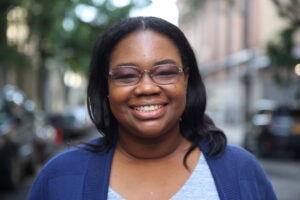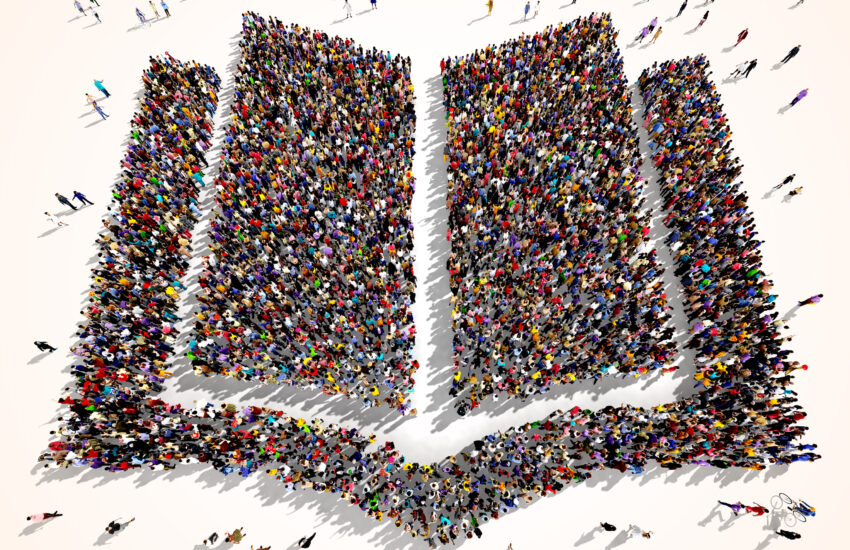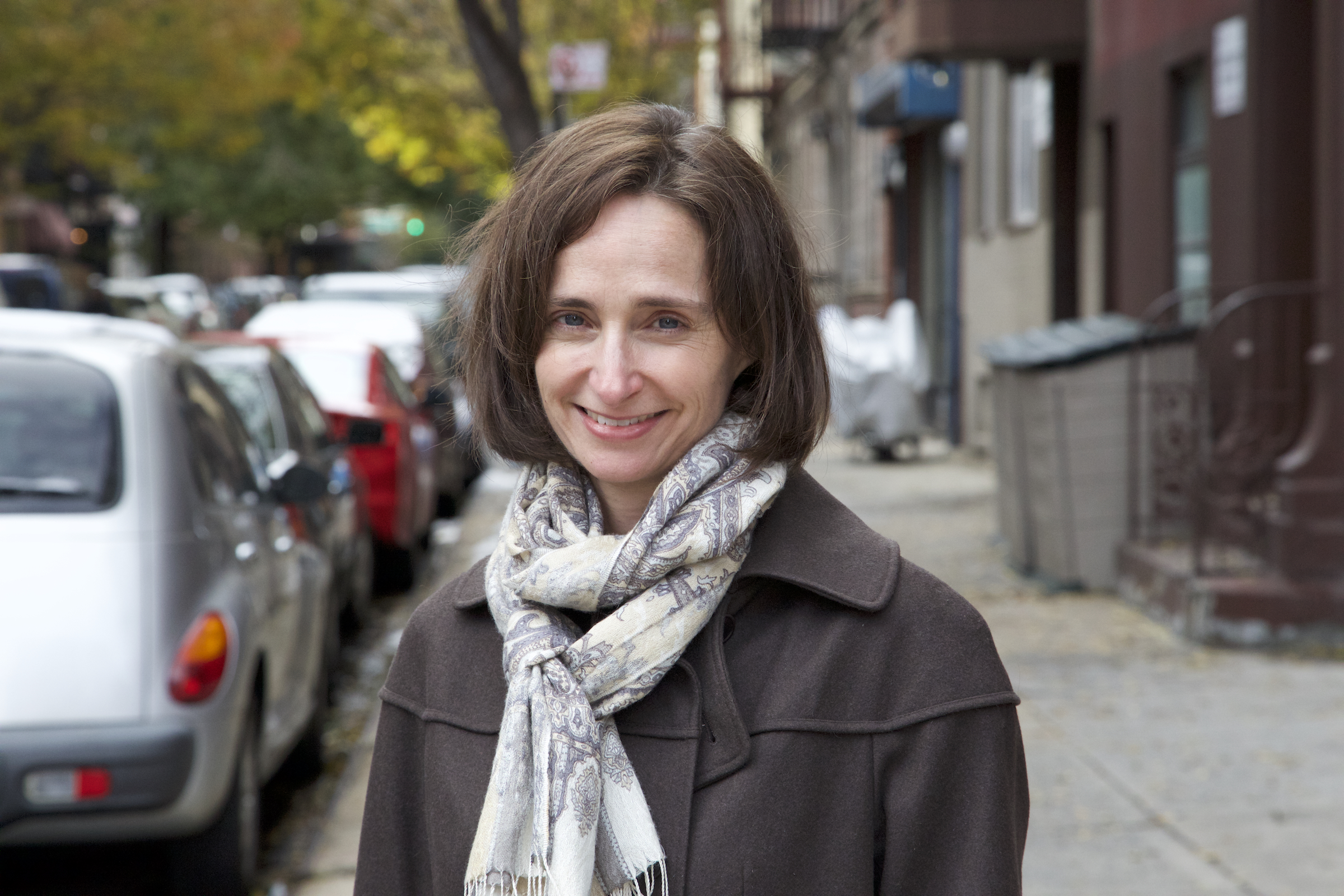Actively engaged in student equity and inclusion activities at the Lycée since 2018, Portia Morrell, computer science teacher in the Secondary, saw a need to build stronger links between her work with students and deepening DEI efforts among our faculty and staff, and also parents. For the 2020-21 school year Portia received a research grant from the Lycée to help the school develop a more holistic approach to its diversity, equity and inclusion work.
We sat down with Portia to find out more about her grant, and what she aims to accomplish for the students and the school community as a whole.

From your perspective, what’s the single most important factor in the evolution of the school’s DEI activities?
The inclusion of diverse voices in each grade level is important. When there are various people challenging the norm by being active in the community, this gives me hope. I’ve noticed that the racial makeup of the student body in middle school is more diverse than that of the high school. These students are using their voices, and their parents are also active in the community. Some are on the parent DEI committee; some are on the Board or part of the APL (the Lycée’s parents association). Shifting culture in our school is correlated to our community embracing various people and viewpoints, and expanding our thought process from linear to multicultural.
You received a Lycée grant this year focused on diversity, equity, and inclusion. What is your objective?
I want to help change the culture of the school. During my first year as a teacher, I was trying to survive, building coursework for my classes, getting to know the French curriculum, and just generally making my way in a new school. But in my second year, I was hit with microagressions and discrimination for the first time. Getting into the work of diversity was a way that I could take action and thrive on my, own and also support students.
The Lycée had been actively undertaking DEI activities, but I felt the work could be strengthened by building bridges between what was being done with students, faculty, staff and parents. Our community comes from so many different origins, and this is surely a gift that we should embrace. I wanted to do serious research and also to try to build programs that would address our different cultural understandings of race. There are some things that our community is open to talking about, but race is the elephant in the room. In order for us to change the culture, we have to look at the elephant in the room and how it impacts us. We have to admit we’re not perfect, figure out ways to right the wrong and make sound goals for the school to change the culture moving forward.
You often say that student voices are so important to changing the culture.
Early on, I noticed how powerful student voices are in this school. The moment that students band together, write an email, create an activity, parents, teachers, and the administration are all ears. This is quite extraordinary, as students minds are still shaping; their opinions are not final, but they are the future.
For some students, it was natural that they would put this power into diversity, equity and inclusion efforts. The work is part of their identity, and the work as a teacher-advisor is in helping to give them a platform to be able to do this.
If you give them the space to talk about their experiences and to have conversations about them, then we can begin to cultivate an intercultural mindset. To establish an intercultural mindset, we need to weave various stories and cultures into the fabric of our school. As students are trying to understand their identity we, too, should be reflecting, reassessing, and listening to student voices to see if we are also including those same identities so that no student feels othered.
What are some of the projects you are working on with students this year?
One of my first actions with students was to help them bring structure and clarity to their work. There are many different forms of diversity, and there was no structure for organizing the work. In 2019, with my partner DEI student advisor, Pauline Dorio, we guided the students to create what is now known as the Coalition. The Coalition is where all of the student affinity clubs come together.
This year the Coalition is leading workshops with students to create spaces for conversations about diversity that we normally don’t talk about in schools. They hosted one series in October for student government and club leaders and are about to begin another in early December. Others are lined up for the beginning of the new year
I am still working closely with the Black Student Union to create more of a Black presence in the school. One of our priorities is to rethink how Black History Month is celebrated at the Lycée.
Outside of the work with students, I am doing research on frameworks for actionable approaches to inclusion and culture change.
Building empathy for others seems to be at the core of your work. You are piloting a program with this in mind with history-geography teacher, Carine Gibert. How does this work support your goal of bridging the gap?
I had begun working with the APL on diversity programming before I received the grant. Early feedback from the APL was that a lot of programs are one-offs. Carine Gibert and I had been wanting to work together again. She had already done a lot of identity work, and she’s francophone, and a great partner to do something deeper with.
We came upon this idea of bringing a community of people through a full intercultural mindset in the span of four sessions in eight weeks. We put together a cohort of 10 people, two parents who are Trustees, the two APL co-presidents, and a group of parents active in school DEI efforts.
Over the course of eight weeks, our objective is to take this group through a full experience of intercultural understanding using the four stages of racism: internal, interpersonal, institutional, and then structural.
It starts with a deep understanding of self. We are asking people to get vulnerable with who they are as a person, and then asking them to transition that to understand how that affects their interactions with others. From there, we look at how a collection of these interpersonal actions shapes a collective reality inside an institution, such as our school. Finally, we will examine how these systems work together to create a system and structure of power. We end with beginning the conversation of how to rewrite the story.
We are grateful to these parents for taking this journey with us, and we know it will help us as we begin to develop deeper programs for faculty and staff.
What is the connection between this work and the DEI workshops already underway with students?
As students, they are learning who they are and who they want to become. No one realizes that their identity as female or male, black or white, is directly linked to diversity, but it is. To me, diversity and identity are the same, even though the students and teachers do not label it as such. Students must also get comfortable with having conversations about various diversity markers. Even the ones labeled as “taboo” in society. How can we say that we are creating “Citizens of Culture and Courage” if we maintain the status quo of the good, bad, and ugliness of our current society?
This work requires a lot of commitment and understanding, especially for our community members for whom the US context of race and diversity is quite new. What books or resources would you recommend they start with ?
It depends on where you are in your understanding and commitment. There is no one book, documentary, or podcast that will give you all the answers you seek. This growth is on going and will require all of us to challenge our beliefs and the thought process of the society that we live in.
Here are a few:
Podcasts
Nice White Parents, Channa Joffe-Walt (The New York Times)
Kiffe ta race, Rokhaya Diallo et Grace Ly (Binge Audio)
Workbooks
Me & White Supremacy by Layla Saad
The Racial Healing Handbook by Anneliese A. Singh PhD LPC
Books
Biased by Jennifer Eberhardt
Dear White America: Letter to a New Minority by Tim Wise
Sommes-nous tous racistes ?: Psychologie des racismes ordinaires by Jacques-Philippe Leyens
Documentaries/Videos
Uncomfortable Conversations with A Black Man by Emmanuel Acho
Race Matters: America in Crisis, A PBS NewsHour Special
Resettlement to Redress, PBS/Viewfinder
About the Author :
Elisabeth King joined the Lycée team in November 2011 as the school’s first director of communications. A francophile at heart, Elisabeth spent her junior year of college in Paris, and held her first job at the French Trade Office here in New York. She brings to the Lycée over 15 years of experience in media and communications in non-profits, government, news and business. She was previously executive vice president and director of strategy at ABI, Inc., a boutique public relations agency, and she worked as associate editor on two books co-authored by Todd Brewster and the late ABC News anchor Peter Jennings.


